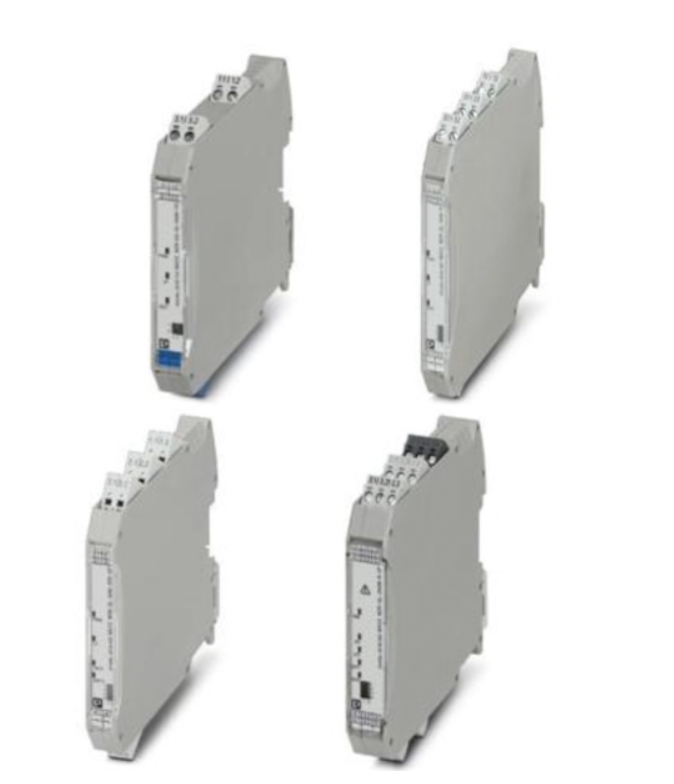Safety Signal Conditioners

Signal conditioners are devices that convert one type of electronic input signal into a different type of output signal. The input signals received from sensors are amplified, filtered and isolated into a more easily read output signal for processing. Many applications involve measurements from sensors that need signal conditioning before the instrument can accurately and effectively measure the signal.
Isolation amplifiers are used to isolate two parts of a circuit and provide amplification for low power signals. They provide isolation from the source side to the load side so that there is no direct connection between the two. This provides a safety barrier to the user on the power side. With such isolation, it creates a possibility for high current to pass through both sides. As this high current is isolated to the user, there is a break in the ohmic continuity of electrical signals between input and output. Isolation amplifiers are intended for applications requiring safe, accurate measurement of low frequency voltage in the presence of high common-mode voltage. They are useful for line-receiving of signals transmitted at high impedance in noisy environments. They are also used for safety in general-purpose measurements where DC and line-frequency leakage must be maintained at levels well below certain mandated minimums. Isolation amplifiers can be found in electrical environments associated with industrial process control systems, medical equipment, power plants and automatic test equipment.
Signal Conditioning: Isolators, Converters, Amplifiers and Splitters
Signal isolators are used to protect sensitive equipment, such as PLCs, from potential hazards that may originate from devices they are connected to, such as sensors or transmitters. Isolators can also be used to filter any noise that might arise from disturbances along the signal path back to the PLC.
Signal converters take one type of signal and change it to something else. For example, a signal converter can interpret an RTD signal and convert it into something that a PLC can understand.
Signal amplifiers increase the resolution of an input signal, allowing for more accurate and detailed data to be sent to the controller, enabling better monitoring and control of devices. Another important function that amplifiers perform is increasing the signal-to-noise ratio.
Signal splitters do not change the signal, but allow the signal to be sent to more than one location. For example, a signal splitter can be used to send data to two different PLC’s without any signal degradation.

